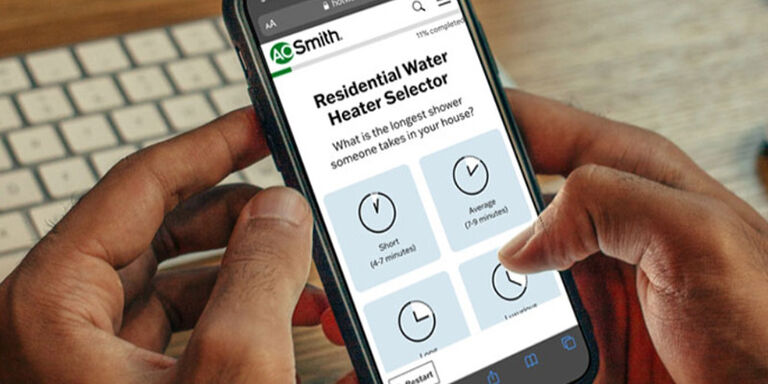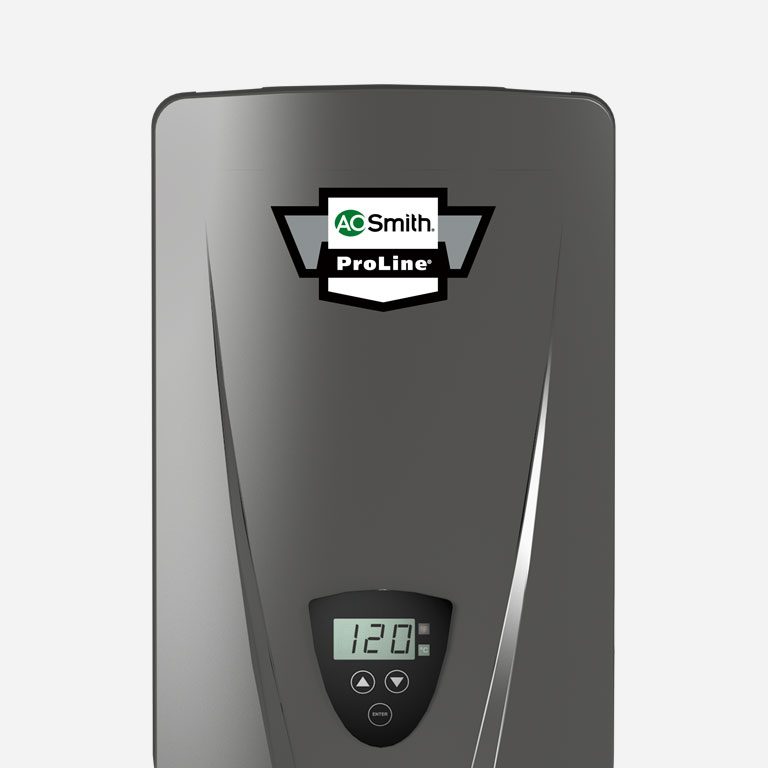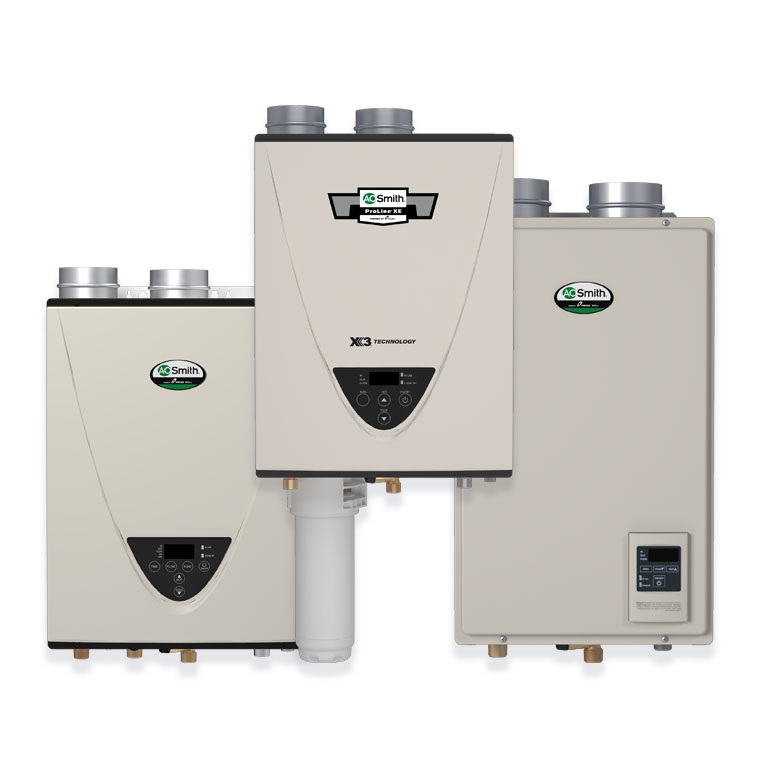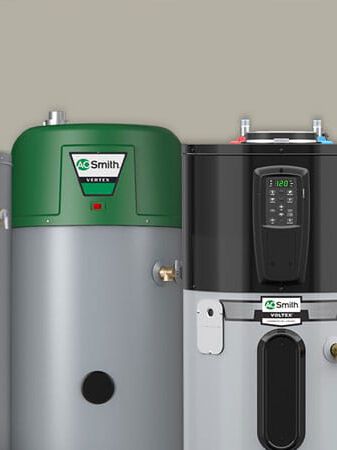
What To Do When a Water Heater Is Not Heating
No Hot Water
When you turn on your faucet or shower expecting warm water and you're met with icy cold water, it can be inconvenient and frustrating. The source of the problem could be something relatively simple to fix, such as a tripped circuit breaker, or it could be more complex, like a malfunctioning heating element.
Table of Contents
- No Hot Water
- Discolored/Smelly Water
- Water Heater Is Leaking
- Tank Making Strange Sounds
- Damaged Gas Control or Burner Assembly
- Avoid Future Issues With Regular Maintenance
- Water Heater Fixes With A. O Smith
- Want to Upgrade Your Water Heater?
- Problems With Your Water Heater?
- Learn More About Tankless Water Heaters
Is your water heater not heating? Being without hot water can be a huge inconvenience. Whether your electric water heater is not heating or your tankless gas system is struggling to function, you'll need the right fix fast.
In this guide, we'll share some of the most common water heater problems, give you advice on diagnosing these issues and share practical steps for resolution. We'll also give you tips on finding a trusted service provider and how to choose a new system should your existing water heater be beyond repair.
Common Causes and Fixes
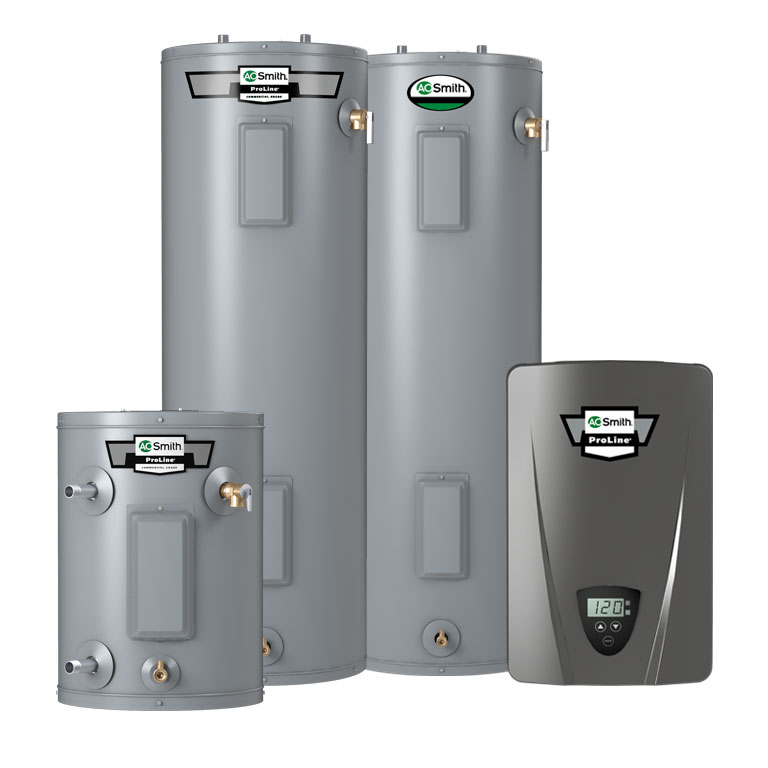
Tanked Water Heaters
- Faulty Heating Elements: Leads to inadequate heating. Fix: Test and replace the heating elements if needed.
- Thermostat Issues: Causes temperature inconsistencies. Fix: replace the thermostat for accurate temperature control.
- Gas Supply Problems: Prevents burner ignition. Fix: Ensure the gas valve is open and check for supply issues; may require professional assistance.
Tankless Water Heaters
- Mineral Buildup: Clogs and damages heating elements. Fix: Descale the heater annually, especially in hard water areas.
- Undersized: Struggles with high demand. Fix: Limit simultaneous hot water use or upgrade to a higher-capacity model.
- Ignition Failures: Stops the unit from starting. Fix: Check gas supply, venting, and ignition pack; may need professional help.
- Cold Water Sandwich: Unexpected cold water burst. Fix: Minimize demand fluctuation or consider a model with a built-in buffer tank.
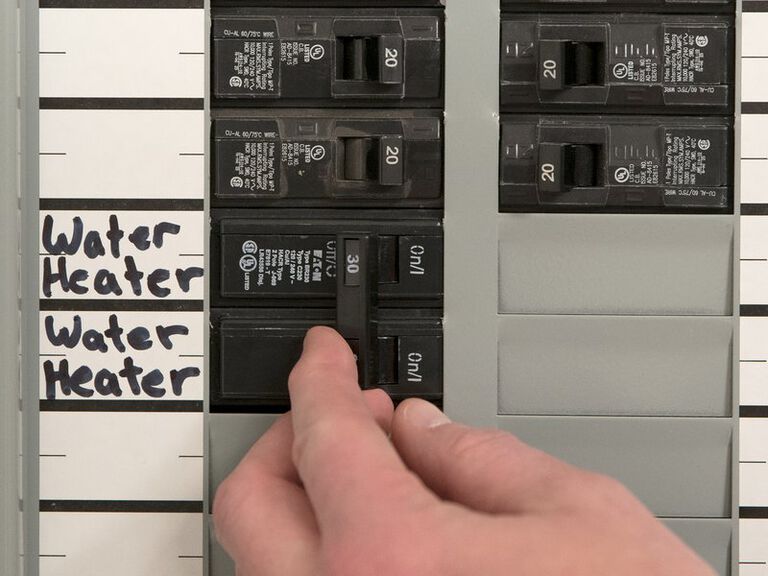
Electric Models
- Tripped Circuit Breaker: A very common reason for an electric water heater not working is a tripped circuit breaker. Fix: Reset the breaker and check for electrical system overloads.
- Faulty Heating Elements: Prevents heating. Fix: Replace faulty elements to restore heating efficiency.
Gas Models
- Vent Blockages: Affects combustion. Fix: Clear the venting system and ensure it's properly installed.
Discolored/Smelly Water
Discolored or smelly water from your hot water heater can be alarming, indicating potential issues within the system. The problem can occur suddenly or build up over time. Below, we list some of the most common causes and straightforward fixes for both tanked and tankless water heaters and provide tips for electric and gas models.
Common Causes and Fixes
- Bacterial Growth: This leads to smelly water, often described as a "rotten egg" smell. Fix: Flush the system with a solution of water and hydrogen peroxide. For persistent issues, increase the water temperature to 140 degrees F for a short period to kill bacteria, then return to a safer temperature.
- Deteriorating Sacrificial Anode Rod: When it is consumed, corrosion accelerates Fix: Inspect and replace the anode rod every year or as needed.
Water Heater Is Leaking
Another common reason for a water heater not working is when it has developed a leak. A leaking water heater is a problem that should be addressed immediately to prevent water damage and potential safety hazards.
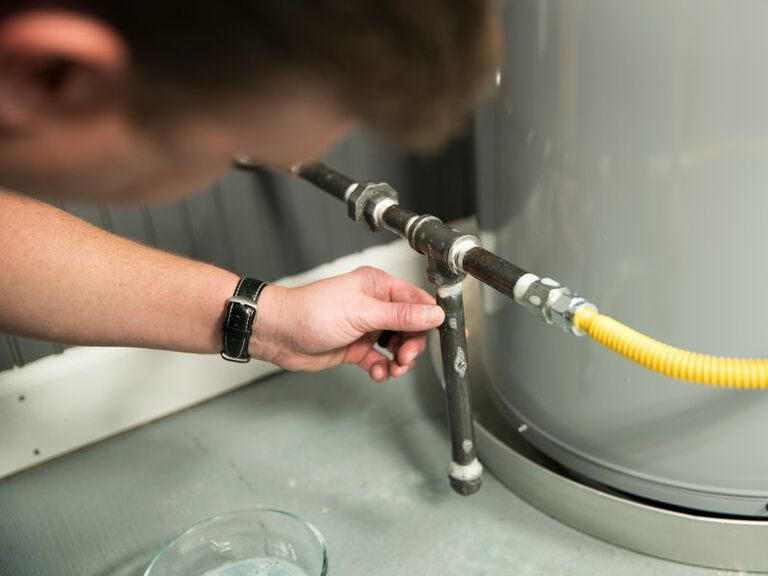
Common Causes and Fixes
- Loose Connections: Fittings or connections may become loose over time. Fix: Tighten any loose fittings or connections with a wrench.
- Faulty Temperature & Pressure Relief Valve (T&P Valve): If this valve is leaking, it could be due to high pressure or a faulty valve. Fix: Test the valve by lifting the lever and letting it snap back. If it continues leaking, replace the valve. Check water pressure and install a thermal expansion tank.
- Leaking Drain Valve: The valve at the bottom of the tank may not be fully closed or could be faulty. Fix: Ensure the drain valve is completely closed. Replace the valve if it continues to leak.
- Internal Tank Leak: Over time, the tank may corrode and develop a leak. Fix: Unfortunately, if the tank itself is leaking, the entire water heater usually needs to be replaced.
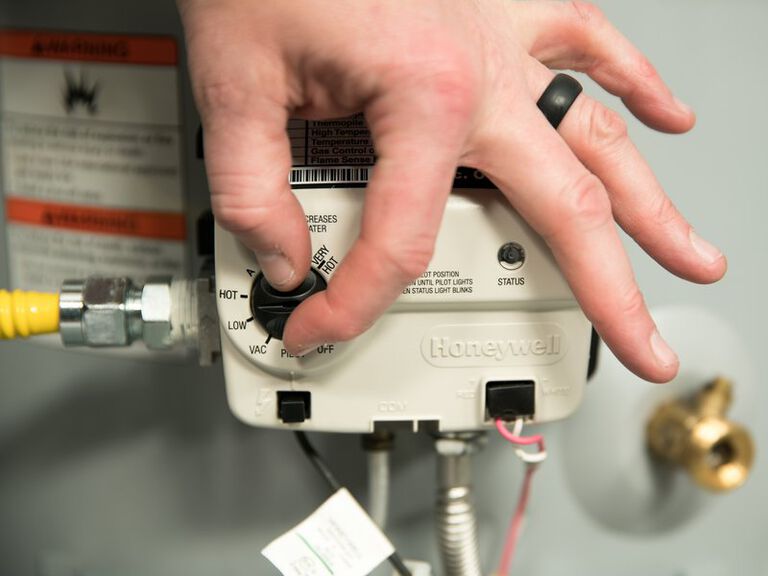
For Electric Water Heaters
- Heating Element Gaskets: Leaks can occur around the heating elements if the gaskets fail. Fix: Turn off the power and water supply, drain the tank and replace the gaskets.
For Gas Water Heaters
- Gas Control Valve Leak: Rare but possible. Fix: This is a job for a professional. If you suspect a leak, turn off the gas supply and call a technician.
Tank Making Strange Sounds
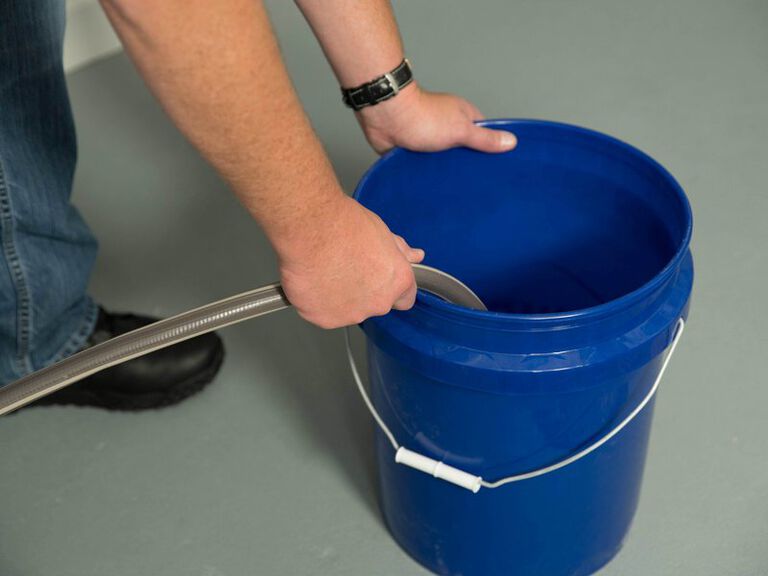
Strange sounds coming from a water heater can be disconcerting and often indicate underlying issues. From the buildup of sediment causing loud popping sounds to hissing sounds caused by scale on the heating element, these issues need speedy attention to prevent problems from getting worse.
Common Causes and Fixes
- Sediment Buildup: Hard water minerals accumulate at the bottom, causing popping or rumbling noises as the water heats. Fix: Drain and flush the tank to remove sediment. This may need to be done more frequently in areas with hard water.
- Water Hammer: A sudden stop in water flow can cause loud banging noises, known as water hammer. Fix: Install a water hammer arrestor at the water heater to absorb the shock.
- Heating Element Scaling: In electric water heaters, scale can form on heating elements, leading to crackling, popping or hissing sounds. Fix: Remove the elements to clean or replace them if heavily coated with scale.
- T&P Valve Noise: If the temperature and pressure relief valve frequently opens or makes noise, it might indicate high pressure. Fix: Check the home's water pressure and the heater's settings. A pressure-reducing valve or expansion tank may be needed.

Condensation on the Water Heater
Condensation on a water heater can sometimes be mistaken for a leak due to the amount of water it can produce. This phenomenon is particularly common in certain conditions and types of water heaters.
Common Causes and Fixes
- High Demand Periods: During times of heavy hot water use, cold water entering the tank can cause the outer surface to cool and condense moisture from the air. Fix: This is usually temporary and resolves as the tank returns to its normal temperature. Ensure adequate ventilation to aid in moisture dissipation.
- First Use or Refill: Condensation can occur when a new water heater is filled for the first time or after being emptied and refilled due to the difference in temperature between the cold water inside the tank and the warmer external air. Fix: Allow some time for the water heater to reach its operating temperature; condensation should decrease as the tank warms up.
- High Humidity: In areas with high humidity, condensation is more likely to form on the outside of the tank. Fix: Reducing humidity in the room with a dehumidifier or improving ventilation can help.
Preventive Measures
- Insulation Blankets: For older tanks, especially in cooler climates or unheated spaces, installing an insulation blanket can help reduce condensation by keeping the outer surface of the tank warmer.
- Regular Maintenance: Ensure that all components, including vents and flues for gas models, are in good working condition to prevent operational issues that could contribute to condensation.
Damaged Gas Control or Burner Assembly
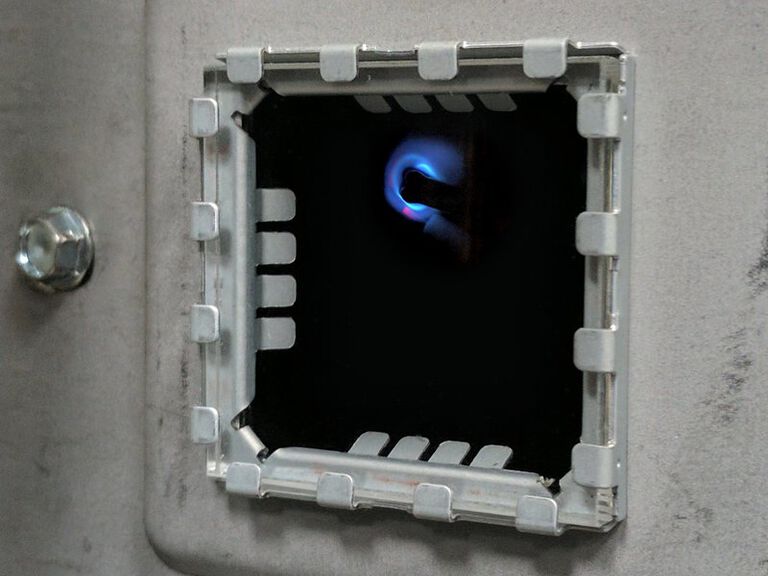
A damaged gas control or burner assembly in a gas water heater can significantly impact its efficiency and safety. Here’s what you need to know about identifying this issue and the steps you can take to resolve it.
Common Causes and Fixes
- Faulty Gas Control Valve: The gas control valve regulates the gas flow to the burner. A malfunction can lead to inadequate heating or failure to ignite. Fix: This component requires precise calibration and should be inspected and replaced by a professional if found to be defective.
- Clogged Burner Assembly: Dirt, debris or rust can clog the burner assembly, affecting the flame quality and heating efficiency. Fix: Turn off the gas and water supply, and carefully clean the burner assembly. For heavy buildup or damage, replacement by a professional is recommended.
Learn About Tankless Water Heaters
There are times when a hot water heater not working calls for a replacement or upgrade. At A. O. Smith, we make choosing a hot water heater easier with our Water Heater Selector Tool. You can also search our directory of authorized, local professionals to install your new water heater for you.
Electric Tankless Water Heaters
Electric tankless water heaters are celebrated for their compact size and lower initial installation cost. Ideal for smaller households or point-of-use applications, they run on electricity, making them a great choice for homes without natural gas service. These units are highly efficient, as they convert almost all the energy they consume into hot water, reducing energy waste.
Gas Tankless Water Heaters
Gas tankless water heaters on the other hand, are suited for larger households with higher hot water demands. They typically offer higher flow rates than their electric counterparts and can be more cost-effective to operate in the long run, especially in regions where gas is cheaper than electricity. These units require venting to the outdoors but are an excellent choice for families looking to maximize hot water usage without sacrificing space or efficiency.
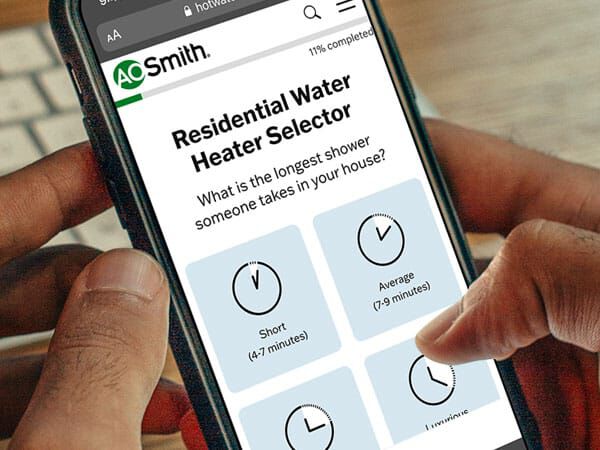
Water Heater Selector Quiz
Use our water heater selector to find the correct water heater for your home.
